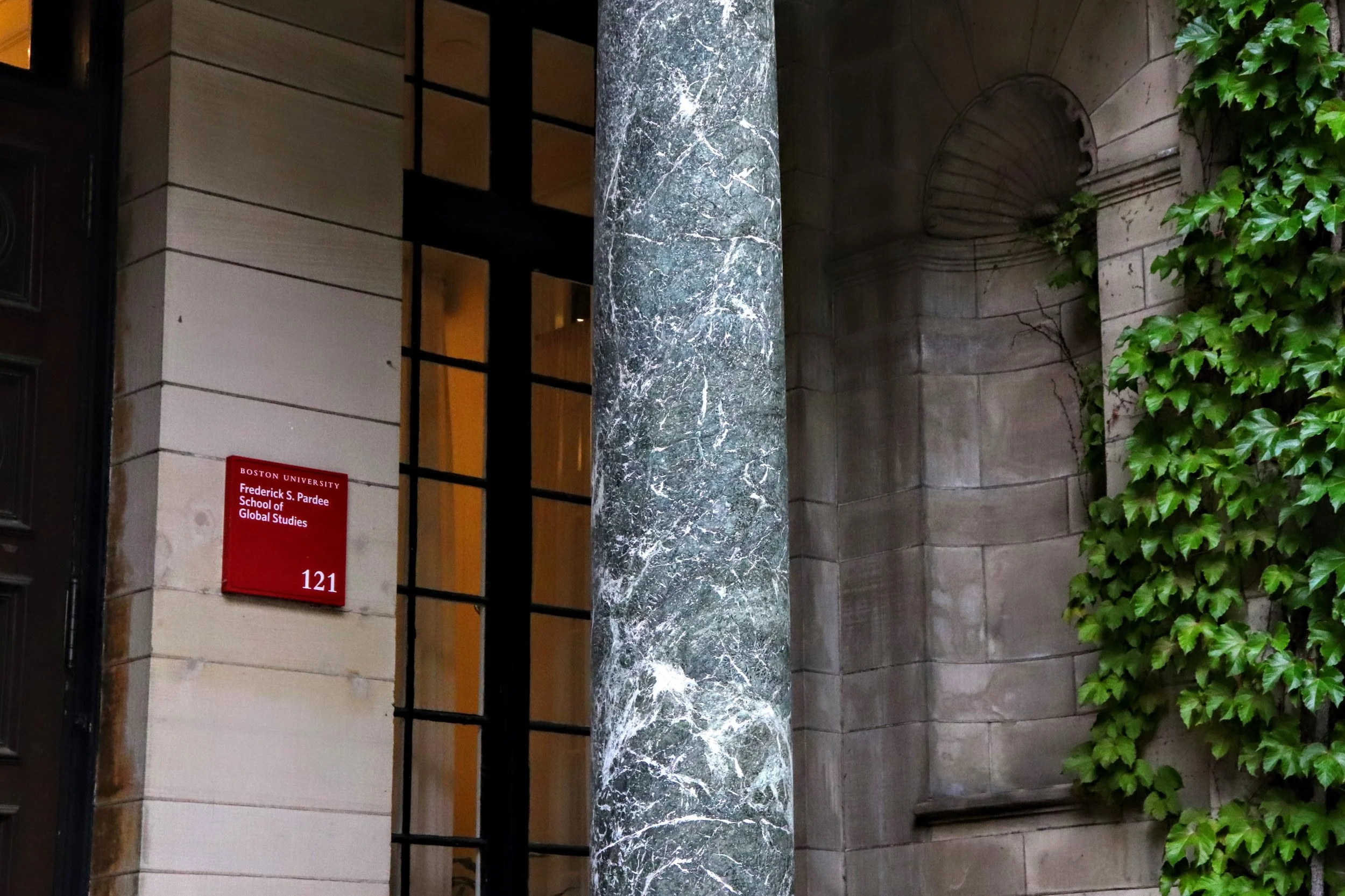
Featured Articles
Since the collapse of the Soviet Union, the Fergana Valley region – encompassing parts of Kyrgyzstan, Tajikistan, and Uzbekistan – has been plagued by recurring violence rooted in decades of undefined borders. Minor disagreements frequently escalate into full-scale territorial and ethnic clashes, and the absence of regional cooperation has long stalled peace efforts in the Fergana Valley. Yet in March of 2025, the three states signed a historic treaty, offering new hope of easing tensions in the valley.
Amid rising global instability, EU foreign policy has sought to defend the current rules-based world order, which protects the security of its member states. At the 80th UN General Assembly, EU leaders attempted to advance this objective by advocating for three key political priorities: supporting Ukraine, advancing climate commitments, and strengthening UN institutions. However, internal divisions due to domestic political changes risk complicating the EU’s ability to achieve these priorities.
South Korea and Thailand are turning fashion into a diplomatic language– one spoken through K-pop runways, artisanal textiles, and global storytelling. South Korea’s state-driven, celebrity-powered machine broadcasts an image of sleek modernity, while Thailand’s heritage-rooted entrepreneurship transforms tradition into contemporary allure. Together, they reveal how fashion can rewrite stereotypes, cultivate national pride, and pull global audiences closer, one strategically crafted garment at a time.
On October 9, 2025, U.S. President Donald Trump and Treasury Secretary Scott Bessent, authorized a 20 billion-dollar currency swap with the Central Bank of the Argentine Republic. Economic instability in Argentina has been a consistent issue for decades, and proponents hope that the currency swap will bring stability to the Argentine peso while increasing investors’ confidence. Some call this currency swap a “bailout” to the Argentine government, whose president, Javier Milei, is a close ally of Trump. Is this currency swap a sign of continued and growing American interference in Latin America?
Morocco’s postcard-perfect image is cracking, as thousands of young people, mobilized online, take to the streets, demanding “freedom, dignity, and justice.” Facing soaring youth unemployment, underfunded education and healthcare, and accusations of government corruption, protesters call for reform and accountability. Their movements reflect a rising wave of Gen-Z led uprisings across the globe, fueled by frustration and social media organized unity.
The Enlargement Package Report represents both recognition and restraint from the EU in terms of Ukraine. It acknowledges Ukraine’s extraordinary progress under extreme duress, but warns that membership will still require years of sustained reform from the country. Ukraine’s government continues to insist that reforms are advancing as quickly as wartime conditions allow. As Brussels debates the mechanics of accession, the larger question may not be if Ukraine joins the EU, but how and when Europe can adapt itself to welcome a member forged through war and resilience.
Widespread protests have thrust the East African nation of 70 million people into chaos. Outrage emerged in the wake of President Samia Suluhu Hassan’s massive electoral victory and amid allegations of corruption and repression of opposing political parties and their leaders.
Lake Baikal illustrates how environmental vulnerability becomes intertwined with political and institutional constraints. Despite its global significance, the Lake’s protection remains hindered by fragmented authority, shifting development priorities, and uneven enforcement—revealing broader tensions within Russia’s approach to environmental governance and long-term ecological stewardship.
After more than a decade of civil war, the fall of Bashar al-Assad’s regime in December 2024 marked a historic turning point for Syria. The new transitional government led by Ahmed al-Sharaa faces the immense task of rebuilding authority, stabilizing security, and defining a new political order amid persistent socio-economic and sectarian issues.
Opinions
Since the collapse of the Soviet Union, the Fergana Valley region – encompassing parts of Kyrgyzstan, Tajikistan, and Uzbekistan – has been plagued by recurring violence rooted in decades of undefined borders. Minor disagreements frequently escalate into full-scale territorial and ethnic clashes, and the absence of regional cooperation has long stalled peace efforts in the Fergana Valley. Yet in March of 2025, the three states signed a historic treaty, offering new hope of easing tensions in the valley.
Amid rising global instability, EU foreign policy has sought to defend the current rules-based world order, which protects the security of its member states. At the 80th UN General Assembly, EU leaders attempted to advance this objective by advocating for three key political priorities: supporting Ukraine, advancing climate commitments, and strengthening UN institutions. However, internal divisions due to domestic political changes risk complicating the EU’s ability to achieve these priorities.
South Korea and Thailand are turning fashion into a diplomatic language– one spoken through K-pop runways, artisanal textiles, and global storytelling. South Korea’s state-driven, celebrity-powered machine broadcasts an image of sleek modernity, while Thailand’s heritage-rooted entrepreneurship transforms tradition into contemporary allure. Together, they reveal how fashion can rewrite stereotypes, cultivate national pride, and pull global audiences closer, one strategically crafted garment at a time.
On October 9, 2025, U.S. President Donald Trump and Treasury Secretary Scott Bessent, authorized a 20 billion-dollar currency swap with the Central Bank of the Argentine Republic. Economic instability in Argentina has been a consistent issue for decades, and proponents hope that the currency swap will bring stability to the Argentine peso while increasing investors’ confidence. Some call this currency swap a “bailout” to the Argentine government, whose president, Javier Milei, is a close ally of Trump. Is this currency swap a sign of continued and growing American interference in Latin America?
Morocco’s postcard-perfect image is cracking, as thousands of young people, mobilized online, take to the streets, demanding “freedom, dignity, and justice.” Facing soaring youth unemployment, underfunded education and healthcare, and accusations of government corruption, protesters call for reform and accountability. Their movements reflect a rising wave of Gen-Z led uprisings across the globe, fueled by frustration and social media organized unity.
The Enlargement Package Report represents both recognition and restraint from the EU in terms of Ukraine. It acknowledges Ukraine’s extraordinary progress under extreme duress, but warns that membership will still require years of sustained reform from the country. Ukraine’s government continues to insist that reforms are advancing as quickly as wartime conditions allow. As Brussels debates the mechanics of accession, the larger question may not be if Ukraine joins the EU, but how and when Europe can adapt itself to welcome a member forged through war and resilience.
Widespread protests have thrust the East African nation of 70 million people into chaos. Outrage emerged in the wake of President Samia Suluhu Hassan’s massive electoral victory and amid allegations of corruption and repression of opposing political parties and their leaders.
Lake Baikal illustrates how environmental vulnerability becomes intertwined with political and institutional constraints. Despite its global significance, the Lake’s protection remains hindered by fragmented authority, shifting development priorities, and uneven enforcement—revealing broader tensions within Russia’s approach to environmental governance and long-term ecological stewardship.
After more than a decade of civil war, the fall of Bashar al-Assad’s regime in December 2024 marked a historic turning point for Syria. The new transitional government led by Ahmed al-Sharaa faces the immense task of rebuilding authority, stabilizing security, and defining a new political order amid persistent socio-economic and sectarian issues.
THE JOURNAL
As Boston University’s foremost academic journal, the International Relations Review continues to publish a bi-annual print issue with 120+ pages of analysis and commentary from a diverse group of staff writers and contributors.

Listen to the latest
IN RELATION TO
Our new medium of discourse!
With the vast opportunities available in the field of international relations, our latest podcast project, In Relation To, seeks to promote the diversity and richness of IR as a professional field, academic discipline, and arena for activism and global citizenship.
WE WANT TO HEAR FROM YOU!
Interested in sharing your analysis of current world issues? Have an amazing portfolio of photos? Want to display your work and have it archived at the Library of Congress?
We are looking for writers, photographers, and contributors to add their unique repertoire to our publication!
















